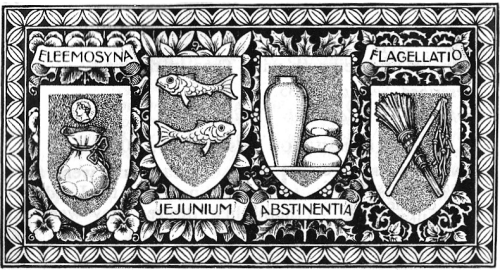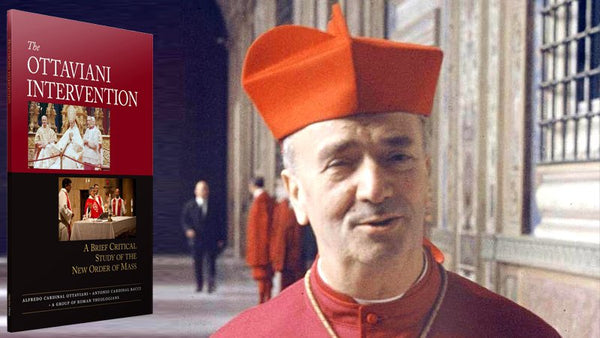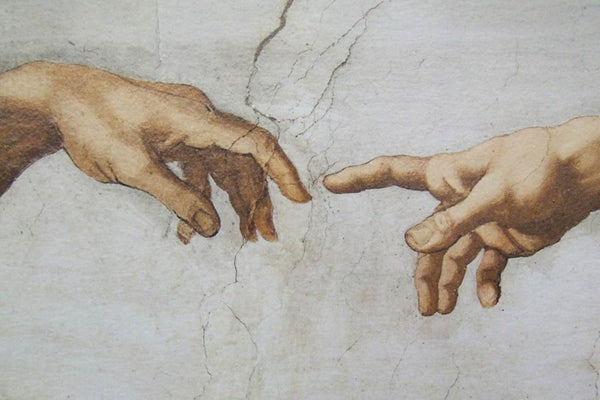Rules for Fast & Abstinence

What are the current rules for fasting and abstinence? How do I observe the traditional rules?
Why do we make Penance?
“Unless you do penance, you shall likewise perish.” (Lk. 13:5)
Because we are sinners, justice requires each of us to make recompense to God for the honor we have denied Him by our sins. Because we have misused our goods, our souls and bodies—as well as those of others—the natural law requires us to strive to restore the order we have disturbed by our sins. Thus, the natural law and the Divine Law bind us in a general way to perform acts of penance. In order to help us fulfill this requirement, Holy Mother Church, knowing our weakness and laziness, binds us under ecclesiastical laws to perform works of penance at certain times.
Penance is also useful to obtain better control over our wounded nature. One may refrain himself from a legitimate satisfaction (food, sleep, entertainment, etc.) in order to oblige the body and the passions to obey the direction of the soul. Doing penance, making sacrifices are part of a needed ascetical practice to reform of our inner disorder, the heritage of the original sin. Practiced with the grace of God and prudence (conferring with one’s confessor), it becomes a great means of salvation.
Penance can also be a prayer, a sacrifice of a legitimate good, given to God as a way to recognize His power, to beg for a grace or to manifest one’s love by imitating and being united to Our Lord’s Passion.
Read the Archbishop's Letter on Fast & Abstinence
Fast and Abstinence required by the Church
Throughout the centuries, the Church has changed the ecclesiastical laws regulating penance, sometimes becoming more strict, sometimes relaxing the discipline.
Only the Church can hold us guilty of mortal sin for failing in this or that specific act of penance.
“Rules for penitential days under present Church law” details the bare minimum of penance which we must accomplish under pain of mortal sin.
However, we certainly offend God by neglecting penance completely over a length of time. Also, one will easily fall into mortal sin who confines penance to only those days and acts required by the current law.
“Guidelines for traditional penitential practices” spells out the strongly recommended practices which were observed until just after the Second Vatican Council.
Rules for penitential days under present Church law
In 1966, Pope Paul VI promulgated a new set of regulations for fasting and abstaining by his apostolic constitution, Paenitemini. These new rules are listed in the 1983 Code of Canon Law, Canons 1249-1253 and all Roman Catholics are bound to strictly observe them.
There are two sets of laws that apply to the Church's penitential days:
- The law of abstinence: this refers to abstaining from meat.
- The law of fasting: this refers to the quantity of food taken, thus also refraining from eating between meals.
Who is bound to observe these laws?
- The law of abstinence binds all Catholics, beginning on the day after their 14th birthday.
- The law of fasting binds all adults (beginning on their 18th birthday) until the midnight which completes their 59th birthday.
- The law of abstinence forbids the use of meat. This does not apply to dairy products, eggs, or condiments and shortening made from animal fat.
- The law of fasting allows only one full meal a day and two smaller meals (snacks). The two smaller meals should not equal the quantity of the main meal (which in the United States is customarily observed as the evening dinner).
- When fasting, eating between meals is not permitted, but liquids are allowed, including milk and fruit juices.
- On fast days, fish and all cold-blooded animals may be eaten (e.g., frogs, clams, turtles, etc.).
In the USA
In Paenitemini, Pope Paul VI gave authority to the episcopal conferences on how the universal rules would be applied in their region. On November 18, 1966, the National Conference of Catholic Bishops legislated the following to be observed in the United States:
- Abstinence is obligatory on all Fridays of Lent, except Solemnities (i.e., Ist Class Feasts).
- Fasting and abstinence are obligatory on Ash Wednesday and Good Friday.
- Abstinence on all Fridays, though not obligatory under pain of sin, is “especially recommended.”
- Fasting on all weekdays of Lent, though not obligatory under pain of sin, is “strongly recommended.”
The local bishops also have authority to grant dispensations from these rules within their dioceses.
Guidelines of traditional penitential practices
Here are the traditional rules of fast and abstinence outlined in Canons 1250-1254 of the 1917 Code of Canon Law and observed per the 1962 liturgical calendar.
Who was bound to observe these laws?
- The law of abstinence bound all Catholics, beginning on the day after their 7th birthday.
- The law of fasting bound all Catholics, beginning on the day after their 21st birthday and ending at the midnight which completed their 59th birthday. [Note: The USA's particular law had lowered the obligatory fasting age to 18.]
What was forbidden and allowed to be eaten
- The law of abstinence forbade the eating of flesh meat and of broth made of meat, but did not exclude the use of eggs, dairy products, or seasonings made from the fat of animals.
- The law of fasting prescribed that only one full meal a day was taken with two smaller meals that did not equal the main one.
- As to the kind of food and the amount that might be taken, the approved customs of the place were to be observed. It was not forbidden to eat both flesh meat and fish at the same meal, nor to interchange the midday and evening meals.
In the Universal Church
- Abstinence was obligatory on all Fridays, except on Holy Days of Obligation outside of Lent.
Fasting and complete abstinence were obligatory on the following days:
- Ash Wednesday
- Fridays and Saturdays in Lent
- Good Friday
- Holy Saturday (until midnight)
- Ember Days (Wednesday, Friday and Saturday)
- Vigil of Pentecost
- Vigil of Christmas
- [NB: both the Vigils of the Immaculate Conception and of All Saints were omitted from the 1962 calendar]
Partial abstinence
Fasting and partial abstinence (meaning meat could be eaten at the principal meal) were obligatory on all other weekdays of Lent (i.e., Monday through Thursday). Friday was always complete abstinence).
Some further clarifications to universal laws
There are more rules about fasting and abstaining when a fast day was in concurrence with a Sunday:
- Sundays throughout the year and Holy Days of Obligation outside of Lent cancelled the fasting and/or abstinence of any penitential day which coincided.
- If a fast-day Vigil fell on Sunday, the fasting and abstinence associated with the Vigil were not anticipated on the Saturday, but dropped altogether that year.
Particular rules observed in the USA
On January 28, 1949, the United States bishops issued a statement modifying the regulations of fasting and abstinence in America (thus differing slightly from the universal laws) after receiving a ruling from the Sacred Congregation of the Council.
Fasting and partial abstinence was obligatory on the following days:
- Ember Wednesdays and Saturdays
- Vigil of Pentecost
- all other weekdays of Lent including Saturdays
Liquids, including milk and fruit juices, might be taken at any time on a day of fast, but “other works of charity, piety, and prayer for the pope should be substituted” to compensate for this relaxation.
In 1950's, Pope Pius XII gave an indult to the American bishops allowing them to dispense with Abstinence on any penitential day that was a civic holiday and on the Friday that followed Thanksgiving Day.
Rules of Fast and Abstinence for the members of the Society of St. Pius X
Day of Fast and Abstinence
- Ash Wednesday
- Good Friday
- Friday of Lent
- All Ember Wednesday, Friday and Saturday
- The vigils of All Saints, Christmas, Pentecost, Immaculate Conception.
Abstinence
Each Friday of the year



Angelus Press
Author